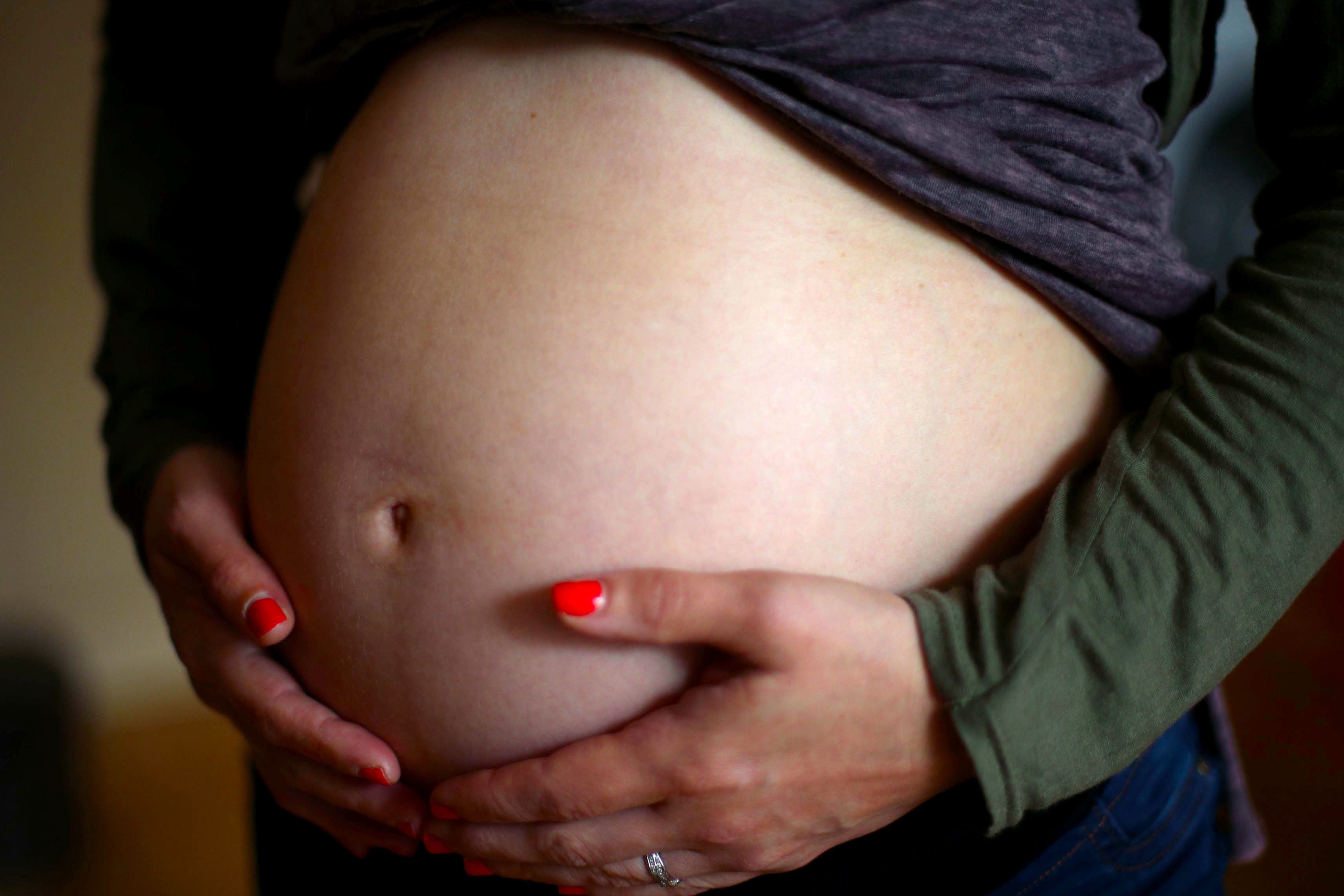Study finds why morning sickness is more severe for some pregnant women
Academics said they hope the discovery can lead to more effective treatments for the condition.

More effective treatments for severe cases of morning sickness could be on the horizon after researchers discovered the reason why some pregnant women suffer worse than others.
Academics from the UK, US and Sri Lanka said the condition is caused by exposure to the hormone GDF15 being produced by babies in the womb, with the severity of illness resting on how sensitive the mother is to the hormone.
It is hoped the discovery could help treat severe cases of the condition, which is known as hyperemesis gravidarum (HG) and can sometimes result in hospitalisation, in an “effective and safe way”.
Previous studies have suggested sickness and nausea in pregnancy could relate to GDF15 being produced by the placenta, but researchers said the “full mechanistic understanding is lacking”.
To better understand the condition, the team analysed data from women recruited to various studies, including at the Rosie Maternity Hospital in Cambridge.
They found the level of nausea experienced by women in pregnancy related to the amount of GDF15 produced by the fetal part of the placenta.
The baby growing in the womb is producing a hormone at levels the mother is not used to
The level of sickness also rested on how much of the hormone the woman had been exposed to prior to pregnancy.
Professor Sir Stephen O’Rahilly, director of the Medical Research Council metabolic diseases unit at the University of Cambridge, said: “Most women who become pregnant will experience nausea and sickness at some point, and while this is not pleasant, for some women it can be much worse – they’ll become so sick they require treatment and even hospitalisation.
“We now know why: the baby growing in the womb is producing a hormone at levels the mother is not used to.”
GDF15 is made at low concentration in most of the body’s organs. A woman with lower levels in her blood outside of pregnancy may be at a higher risk of developing severe morning sickness in pregnancy, known as HG, researchers said.
HG can lead to prolonged periods of vomiting, dehydration and weight loss. Treatments include anti-sickness medicines and steroids, but some women may require hospitalisation and intravenous fluids.
Sir Stephen added: “The more sensitive she is to this hormone, the sicker she will become. Knowing this gives us a clue as to how we might prevent this from happening.
“It also makes us more confident that preventing GDF15 from accessing its highly specific receptor in the mother’s brain will ultimately form the basis for an effective and safe way of treating this disorder.”
Studies in which mice were exposed to high levels of GDF15 showed a loss of appetite, while mice given a long-acting form of GDF15 did not show the same symptoms when exposed to similar levels of the hormone.
The team said building up a tolerance prior to getting pregnant could prevent sickness.
Researchers also said women with the inherited blood disorder thalassemia, which causes higher levels of GDF15 outside of pregnancy, experienced little to no nausea or vomiting when pregnant.
When I was pregnant, I became so ill that I could barely move without being sick. When I tried to find out why, I realised how little was known about my condition, despite pregnancy nausea being very common
The findings, published in Nature, could help find better treatments for HG, according to co-author Dr Marlena Fejzo, of the department of population and public health sciences at the University of Southern California.
She added: “When I was pregnant, I became so ill that I could barely move without being sick. When I tried to find out why, I realised how little was known about my condition, despite pregnancy nausea being very common.
“Hopefully, now that we understand the cause of hyperemesis gravidarum, we’re a step closer to developing effective treatments to stop other mothers going through what I and many other women have experienced.”
UK funders of the study were the Medical Research Council and Wellcome, with support from the National Institute for Health and Care Research Cambridge Biomedical Research Centre.
Charlotte Howden is chief executive of Pregnancy Sickness Support and was hospitalised with HG after vomiting up to 30 times a day.
She visited her GP but was told there was nothing they could do. After having tests, she was given medicine that left her “comatose” and was eventually admitted to hospital.
This happened three times, with Ms Howden describing “a complete disconnect between my GP and the consultant”.
She was eventually put on the right treatment at week 16 of her pregnancy.
Ms Howden, who gave birth to son Henry in 2016, added: “When you are suffering from a condition and no-one can tell you why, you start to think, oh, is it me? Is it something I’ve done?”
“I’m so grateful for the dedication of the researchers, because this isn’t a condition that really ever made the headlines until the now Princess of Wales suffered with it. It wasn’t an area of research that people were really interested in. It was just morning sickness – why should we care?”
Bookmark popover
Removed from bookmarks